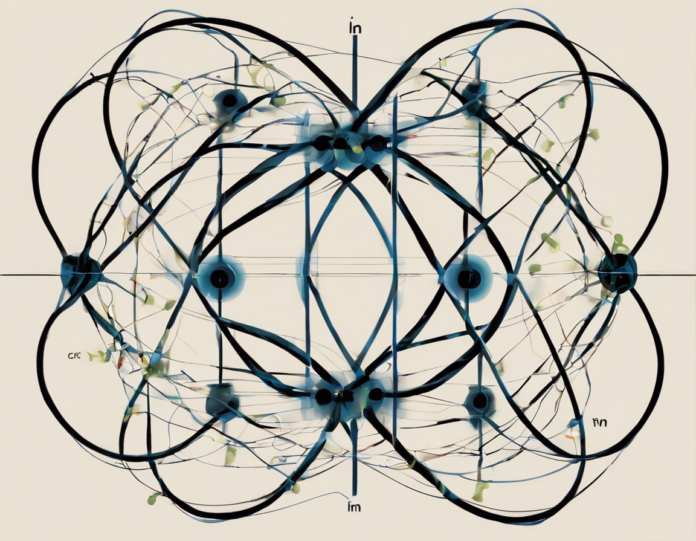Introduction
In the realm of quantum computing, the concept of interference plays a pivotal role in the functionality and performance of quantum devices. Quantum interference occurs when multiple quantum states combine and interact with each other, leading to constructive or destructive interference patterns that significantly impact the outcomes of quantum computations. Leveraging interference in quantum computing offers a plethora of advantages that pave the way for revolutionary advancements in various fields, ranging from cryptography to optimization problems. This article delves into the advantages of interference in quantum computing and elucidates how harnessing interference can propel the capabilities of quantum systems to unprecedented heights.
Understanding Interference in Quantum Computing
Before delving into the advantages of interference in quantum computing, it is imperative to grasp the fundamentals of interference in the quantum realm. In classical computing, bits exist in a definite state of either 0 or 1. Conversely, quantum bits or qubits can exist in a superposition of both states simultaneously, allowing for parallel processing and intricate computations. When qubits interact with each other, they exhibit interference phenomena, wherein their quantum states combine coherently, enabling the computation of complex algorithms at a speed exponentially faster than classical computers.
Advantages of Interference in Quantum Computing
-
Quantum Superposition: One of the primary advantages of interference in quantum computing is the ability to exploit quantum superposition. Through interference effects, qubits can exist in a multitude of states simultaneously, enabling quantum computers to process vast amounts of data in parallel. This superposition property forms the foundation of quantum algorithms such as Shor's algorithm for integer factorization and Grover's algorithm for unstructured search, which outperform classical counterparts in terms of efficiency and speed.
-
Quantum Parallelism: Interference facilitates quantum parallelism, wherein quantum computations can explore multiple solutions concurrently. By leveraging interference patterns, quantum algorithms can evaluate different paths simultaneously and converge on the optimal solution more efficiently than classical algorithms. This parallelism accelerates the resolution of complex computational problems, including optimization, machine learning, and cryptography, revolutionizing various industries.
-
Entanglement: Interference plays a crucial role in creating and manipulating entangled states in quantum systems. Entanglement, a phenomenon where the quantum states of particles become interdependent, enables the instantaneous correlation of qubits regardless of the distance between them. By harnessing interference to generate entangled states, quantum computers can perform entanglement-based protocols such as quantum teleportation and superdense coding, presenting novel possibilities for secure communication and quantum networking.
-
Quantum Interference Devices: Quantum interference devices, such as interferometers and beam splitters, are integral components in quantum computing architectures. These devices exploit interference effects to manipulate and control the flow of quantum information, enabling operations such as quantum gates and measurements. Leveraging interference in quantum devices enhances the precision and reliability of quantum computations, laying the groundwork for scalable quantum technologies with increased computational power.
-
Error Correction: Quantum error correction, vital for mitigating the detrimental effects of decoherence and noise in quantum systems, relies on the principles of interference. By encoding quantum information across multiple qubits and leveraging interference-based techniques such as stabilizer codes and error syndromes, quantum error correction algorithms can detect and rectify errors effectively. The utilization of interference in error correction schemes enhances the fault tolerance of quantum computers, ensuring the accuracy and robustness of quantum computations.
Challenges and Future Directions
While the advantages of interference in quantum computing are profound, challenges such as decoherence, limited qubit connectivity, and scalability hinder the realization of large-scale, fault-tolerant quantum computers. Addressing these challenges requires ongoing research into error mitigation strategies, quantum hardware development, and algorithmic optimizations. Future advancements in quantum computing aim to harness interference more effectively, paving the way for quantum supremacy and transformative applications across diverse domains.
Frequently Asked Questions (FAQs)
1. What is quantum interference, and how does it differ from classical interference?
Quantum interference refers to the phenomenon where quantum states combine coherently to produce constructive or destructive interference patterns. Unlike classical interference, which involves waves or particles following classical laws, quantum interference arises from the superposition of quantum states and entanglement between particles, leading to non-intuitive outcomes and exponential computational speedups.
2. How does interference enhance the speed of quantum computations?
Interference enables quantum computers to leverage superposition and parallelism, allowing for the simultaneous evaluation of multiple computational paths. By exploiting interference effects, quantum algorithms can explore a vast solution space in parallel, accelerating the resolution of complex problems such as factorization, optimization, and simulation.
3. What role does interference play in quantum error correction?
Interference is instrumental in quantum error correction, where quantum information is encoded redundantly across multiple qubits to detect and correct errors. Techniques such as stabilizer codes and error syndromes utilize interference patterns to identify and rectify errors without directly measuring the quantum state, enhancing the fault tolerance of quantum computations.
4. How does interference contribute to quantum entanglement?
Interference facilitates the creation and manipulation of entangled states in quantum systems, wherein the quantum states of particles become correlated irrespective of their spatial separation. By harnessing interference effects, quantum computers can generate entangled states for applications in quantum communication, teleportation, and cryptography, exploiting the intrinsic correlations between entangled particles.
5. What advancements are expected in utilizing interference for quantum computing in the future?
Future developments in quantum computing are geared towards overcoming existing challenges such as decoherence, qubit connectivity, and scalability to harness interference more efficiently. Research efforts focus on improving error correction techniques, optimizing quantum algorithms, and developing novel quantum hardware to unlock the full potential of interference in realizing large-scale, fault-tolerant quantum computers with enhanced computational capabilities.

